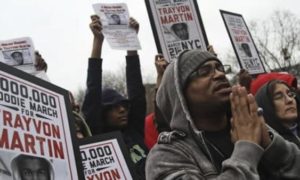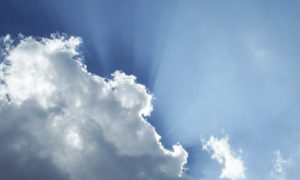Featured
Prayers We Pray

We look at this world and in a certain way, it appears much of it is falling apart. Sandy Hook Elementary, The Exxon Mobile Pipeline leak in central Arkansas, The Boston Marathon bombing are all examples of social and environmental dysfunction. People die, people are evacuated from their homes, and then people die again.
Here in these United States, if we track back just a little more than a decade, there’s 9/11. We see and hear of prayers for rescue, redemption and revenge. We undoubtedly know someone was praying, “Please God, don’t let this happen.” Yet, it happened anyway. We don’t know why these things continue to happen, but what they continue to demonstrate to us is that some of us are not listening. I think it’s because we expect God to hear our prayer and because we believe this so intently we don’t really think we need to listen.
Of course, it’s clear that tragedy didn’t start with any one of these events; humanity deals with discomfort whether it is an act of nature or act of human will. Not everything goes our way and when we on some level recognize the discomfort, we begin to pray. Not all of us pray to the same God. Not all of us call it praying; some of us just try to get what we want from where we want it, and we hope we are successful. But when we pray, reach or grab, we will undoubtedly reach in the direction of whom or what we think holds the potential to supply our desire.
So, I opened my email and this is what I found:
“We recently saw a story about a school in Lake City, AR that cancelled their 6th grade graduation after an atheist group threatened to file suit against the school district for having prayer at the ceremony. (A link to the story is below:)
http://radio.foxnews.com/toddstarnes/top-stories/school-cancels-graduation-over-prayer-controversy.html”
So, does God answer prayer? Really?
Somebody apparently thinks so. So much so that a graduation was canceled. Imagine that – the atheist’s prayers are answered. Who should be mad at God now? Further along in the email, other “prayer professionals” (ministers) and I are being asked to coalesce around saving prayer, but this is the misnomer. Save prayer from what – from whom? Prayer isn’t threatened; it’s misunderstood. The roles we cast: the atheist hates prayer and the religious soul finds this egregious. The religious soul loves prayer and the atheist finds this egregious. We say something. We ask something. We believe something, and we expect something. We want the visible and tangible from something we only know to be invisible – namely God. The farmer plants seed hoping and praying for a harvest. Hoping the rain will fall, the sun won’t parch and the soil will be fertile yet neither the rain, the sun, nor the soil is obligated to produce as the farmer wishes but sometimes they each say, “Yes.”
Could it be that our most authentic prayers are the ones we pray to each other? It’s the one prayed when we merge onto a busy highway from a residential street asking someone to perhaps add a few seconds to their journey and miss a traffic signal that were you not there, they might have made the green light and gotten to work on time. It’s the prayer the grocer prays when she, perhaps unconsciously, asks someone to hire you so you can afford to buy her merchandise. We live in a world replete with symbiosis and yet many of us are unaware of how simply irrevocable this reciprocity is.
“Alone, all alone. Nobody but nobody can make it out there alone.” -Maya Angelou
We are not here alone – none of us are
We are not in this alone – none of us are, and we pray constantly to each other.
In no way am I attempting to remove God from the idea of prayer. My intention is to expand our idea of God. If we could expand our idea of God to include each other, it may be no longer reasonable to believe Madelyn Murray O’Hair successfully took prayer out of school. No one took prayer out of school; what was taken was the notion of misdirected prayer. It was never the exclusively invisible God who made our schools better or safer; it has always been the will of the people or the lack of will to build on a consciousness of love and inclusion that determines whether we live with or without moral integrity and the inclination to do no harm.
We could ask God, to help us get along OR we could just desire to get along.
Our challenge has been that we want to get more than we want to give. Yet, it is in giving that we realize and experience the thing we so fervently pray for – power. We want power so we can do what we want when we want. Why have we not genuinely nurtured a desire to answer a prayer rather than want our prayers answered? But, what will happen when we receive power from having our prayers answered? What will we do with it? Will we recognize the person who recognizes that we have the power? Will we celebrate with them? Will we join their testimony of us or will we embrace the right to power and despise their reach for it? This is after all what we pray to God for, isn’t it?
I experienced this just recently with two of my children. A sixteen year-old boy plays piano beautifully and has the luxury of an electric piano in his room. His thirteen year-old sister wants to play with the piano and asks for it. Her brother tells her she’ll have to get it and play it in her room. So she takes the piano to her room until he wants to play. He goes to the acoustic piano in my office, but it overwhelms the television in the adjacent room and the ten year old asks him to stop playing. He then goes to the bedroom where his sister holds the piano hostage. He begins to play in her room causing a disturbance and she wants him out. They call me. They want me to fix it. They each want me to answer their prayer.
“Dad can you tell him to take the piano to his room?”
“No, Dad. She should take it to my room because she took it out.”
“But Dad, I only took it because he wouldn’t bring it to me. So he should have to take it back to his room like I had to bring it to mine.”
The question I ask? “Can either one of you recognize your own ability to solve this problem?” They both look at me like I’ve asked them for a limb when I’ve only asked them to identify within themselves a power to solve problems rather than create them. Neither of them realizes each is praying to the other. They are, however, willing to realize my power to fix it and this is exactly what they want. They see my power but not their own. In this moment, I am God to them. I am the one with the answer, with the power. And, what do I do with my power except do my best to show them access to their own. They can both say yes to the other and I desperately want them to see this, but who answers my prayer?
They Do. They can. If they will…
There’s a school of students somewhere praying to be helped in their ability to learn and play. And while this is happening, there’s an invisible man bubbling into a reactor of sorts praying to be seen and heard. We can listen better. All of us can.
God has the power. We want him to wield it and favor us over those who want something different. The purpose of prayer is to bring to consciousness the presence of power within and to learn to use that power to respond directly to whatever helps us live more harmoniously. When we lose sight of this practice, we begin to nurse and nurture a sense of entitlement. That is the moment we stop listening; it’s the moment we stop praying and it is precisely the moment we say “no” rather than “yes.”
What is prayer? What is praying? When is the sweet hour of prayer?
It’s the moment when you are awakened to the presence of someone in your space. It could be your mind space, emotional space or even your physical realm. In an instant you are made aware that at least two distinct wills are emerging. It’s in this moment when at least two distinct preferences are recognized. This is it – the precise moment when Love waits tenderly for you to choose it!
“Love is to give from one’s strength into the life of another to help the other optimize his or her reason for being.”

-

 Featured10 months ago
Featured10 months agoCalifornia Is the First State to Create A Public Alert for Missing Black Youth
-

 Featured9 months ago
Featured9 months agoAfrican American Leaders Stay the Course Amid Calls for President Biden To Bow Out of Race
-

 Featured10 months ago
Featured10 months agoThe Debate Fallout Lands on Both Candidates
-

 Featured9 months ago
Featured9 months agoPresident Joe Biden Decides to Withdraw from the Presidential Race
-

 Featured9 months ago
Featured9 months agoIn One of His Final Speeches as President, Biden Says It’s Time for ‘Fresh Voices’
-

 Featured9 months ago
Featured9 months agoPresident Joe Biden Describes Shooting of Donald Trump As ‘Sick’





